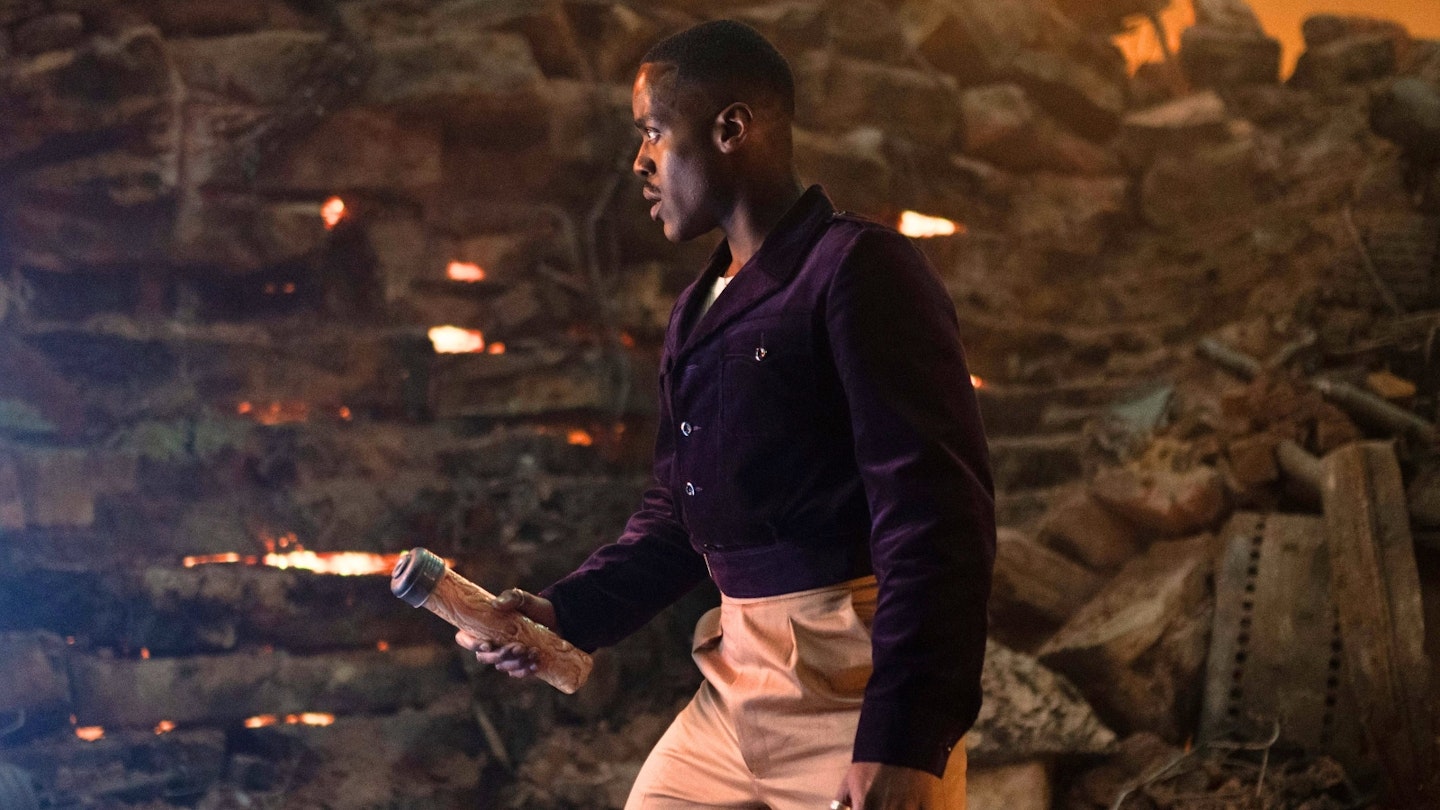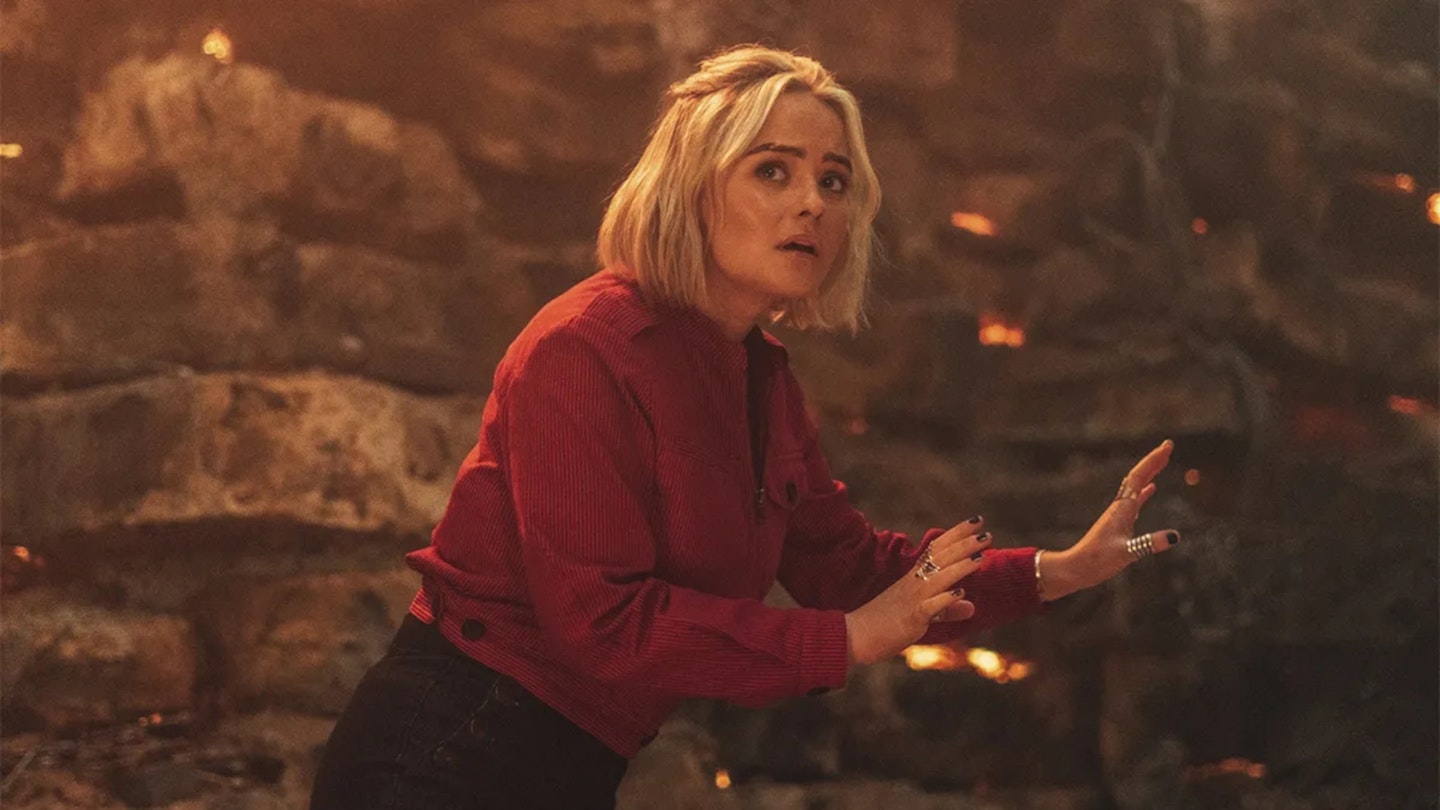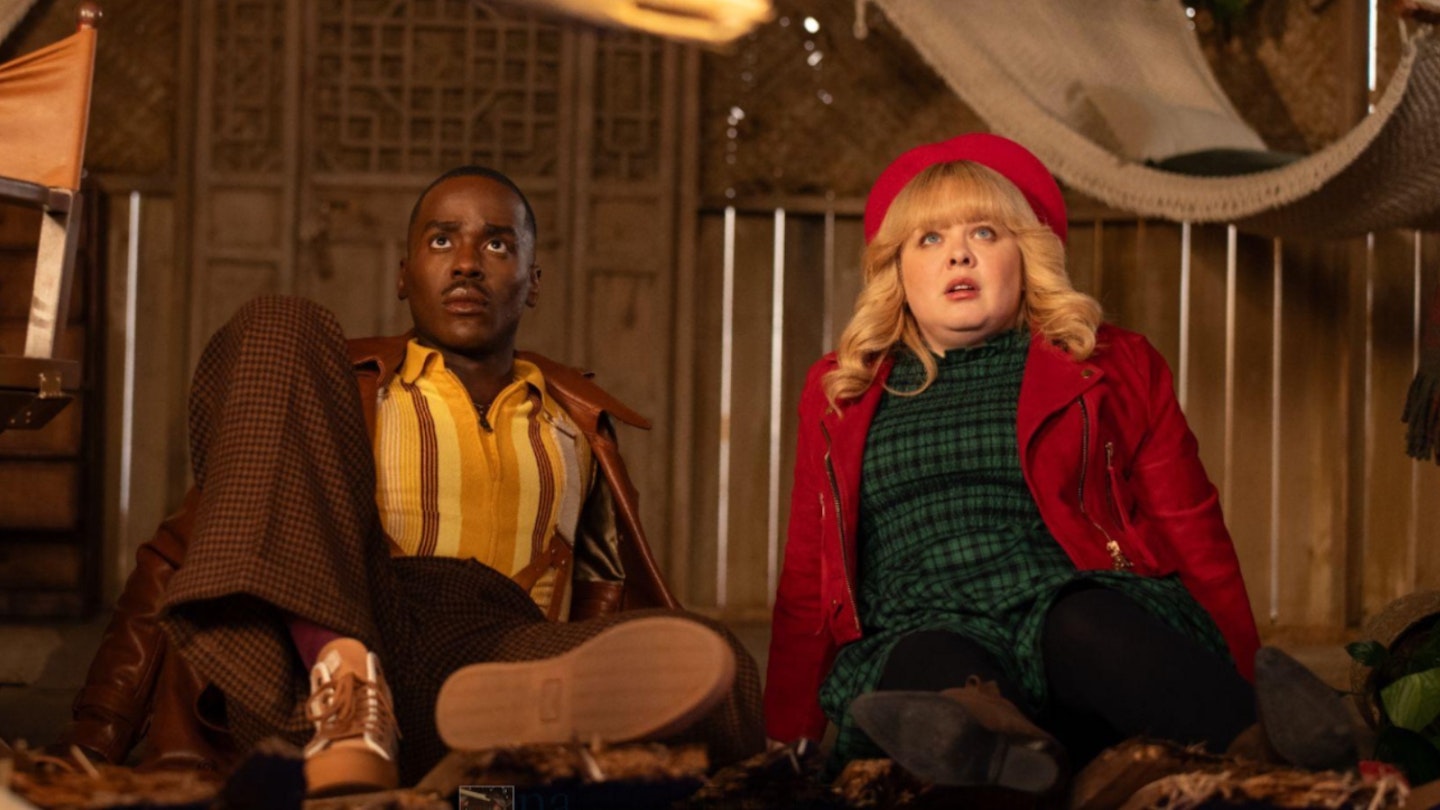*Warning — this review contains some spoilers for 'Boom'*
Ever since Ncuti Gatwa took over the Tardis keys to become Doctor Who’s Fifteenth Doctor, things have been pretty non-stop for everybody’s favourite Time Lord. From playing cosmic catch with Neil Patrick Harris’ Toymaker in 60th anniversary special debut ‘The Giggle’, to scat-battling a goblin king with new companion Ruby Sunday (Gibson) in Christmas outing ‘The Church On Ruby Road’, to run-ins with space babies, bogeymen, Beatles, and the celestial embodiment of music itself in 'Space Babies' and 'The Devil's Chord', there’s barely been a moment for the Doctor — or indeed the show’s viewers — to take a breath. All of that changes with ‘Boom’, a stripped back, slowed down, and cheek-clenchingly suspenseful character study from former Who showrunner — and Weeping Angels creator — Steven Moffat.
After the outré musical spectacle and supernatural Jinkx Monsoon hijinks of last week’s ‘The Devil’s Chord’, ‘Boom’ sees the Doctor and Ruby land the Tardis on Kastarion 3. A cosmic dustbowl with aurora skies, realised by a brilliantly conceived Volume-backdrop-plus-actual-quarry set, the planet is a fog-filled warzone surveilled by AI-driven, Susan Twist-faced ‘ambulances’ that seem to send soldiers running. But before the Doctor can even begin to parse the who, what, and why of the conflict between the Anglican Marines — a militarised, 51st century Church of England battalion Moffat introduced during Who’s Matt Smith era — and their elusive Kastarion foes, he blunders in and steps on a landmine. With the explosive rigged to blow at the slightest change in heart rate, weight distribution, or movement, the Doctor is brought to a standstill for 45 minutes as he and Ruby try to figure out how to stop everything going, well, boom.

Though Moffat’s tenure as Who showrunner is largely best remembered perhaps for sprawling multi-series arcs and epic two-parters like Peter Capaldi's ‘Heaven Sent’ and ‘Hell Bent’, his nose for a one-shot concept piece with a lasting impact is formidable. We’ve seen it before in OG Russell T. Davies era joints ‘Blink’ and ‘The Girl In The Fireplace’, and in Moffat’s own showrunning standout ‘Listen’ — and we see it again in ‘Boom’, an episode inspired by a hairy moment early in the Fourth Doctor's (Tom Baker) run. At a moment where the Fifteenth Doctor and Ruby Sunday’s youthful exuberance and overwhelming joie de vivre could’ve easily veered from breathless towards exhausting, ‘Boom’ forces the pair to stop, testing their burgeoning friendship — and Gatwa and Gibson’s screen partnership — in a high-pressure situation with no easy escape.
Put through the emotional wringer, Gatwa and Gibson really come into their own here as the Doctor and Ruby move beyond their Millennial-meets-Gen Z bestie dynamic into more emotionally rich, complicated territory. With the weight of a world on his shoulders — and its detonator under his foot — we are reminded, in his own words, that the Doctor is “a complex space-time event”, that the same being who sings the “Skye Boat Song” to steady his pulse(s) (a neat nod to Patrick Troughton’s Second Doctor) can also turn an entire battlefield “to dust.” Anger — and an inescapable superiority complex — have long been intrinsic to the Doctor’s identity, and it's a facet of the Time Lord Moffat has returned to time and again. But in Gatwa, whose emotional vulnerability and powder-keg charisma is captured here in a series of extraordinary close-ups, it's channeled in new, horizon expanding ways.
‘Boom’ forces the pair to stop, testing their burgeoning friendship — and Gatwa and Gibson’s screen partnership — in a high-pressure situation with no easy escape.
Opposite Gatwa, Gibson also digs deep here too, shaking off any lingering accusations of her Rose 2.0 status. Going all-in on Ruby’s no-nonsense, distinctly northern disinterest in taking the Doctor's orders and highfalutin filibustering (“tell me what you’re not tellin’ me”), Gibson presents a new challenge to the Doctor's sense of authority whilst simultaneously carrying the series’ most dramatic scenes yet. Though Ruby Sunday’s origins may remain an enigma, by the time ‘Boom’ is through, her convictions — and the affection shared between her and the Doctor — are unquestionable.
It’s not just the Doctor and his companion whose feet are held to the fire here either, though. Taking aim at the military-industrial complex, the impotence of “thoughts and prayers” sloganeering, the rise of AI, and the misappropriation of faith as absolution from moral and ethical autonomy, Moffat’s return doubles as an excoriating state-of-the-nation chamber piece. In an episode that pulls none of its political punches, zingers like “life is cheap, patients are expensive” — and concepts like AI-driven ambulances that euthanise the eminently curable walking wounded, or LED-lined landmines designed to catch the eye in a showroom — hit like haymakers, speaking to the cannibalisation of the NHS and the futility of war.

But whilst righteous anger may course through ‘Boom’, in typical Moffat fashion, love lies at its heart. And from that love comes some of Moffat’s most elegantly written work to date, with poetic lines like “everywhere is a beach eventually” and “snow isn’t snow until it falls” at once capturing both the show’s epic temporal scale and human holding centre. And, lest we forget, the whole episode hinges on “parent power”, on the belief that there is no force greater than a father’s love. The transcendent relationship between orphan Splice (fantastic youngster Caoilinn Springall) and her deceased father John Francis Vater (Joe Anderson) that runs through this episode is especially poignant. Not only does it continue the series’ ongoing conversation with the Doctor’s own familial history (his “Dad to dad” appeal here feels significant), but one particular moment — in which Splice affirms her father “isn’t gone, he’s dead” to a visibly moved Doctor — serves as a timely reminder that, at its purest, faith is simply love that needs no presence to endure. Or, as the Doctor puts it, quoting Philip Larkin’s ‘Arundel Tomb’, “What survives of us is love.” Not death, not war, but love. In these dark times, and at the end of a heavy episode, it’s a hopeful closing note that carries real light.








